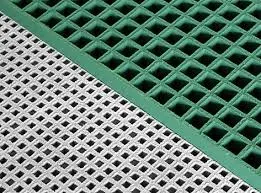
-
 Afrikaans
Afrikaans -
 Albanian
Albanian -
 Amharic
Amharic -
 Arabic
Arabic -
 Armenian
Armenian -
 Azerbaijani
Azerbaijani -
 Basque
Basque -
 Belarusian
Belarusian -
 Bengali
Bengali -
 Bosnian
Bosnian -
 Bulgarian
Bulgarian -
 Catalan
Catalan -
 Cebuano
Cebuano -
 China
China -
 China (Taiwan)
China (Taiwan) -
 Corsican
Corsican -
 Croatian
Croatian -
 Czech
Czech -
 Danish
Danish -
 Dutch
Dutch -
 English
English -
 Esperanto
Esperanto -
 Estonian
Estonian -
 Finnish
Finnish -
 French
French -
 Frisian
Frisian -
 Galician
Galician -
 Georgian
Georgian -
 German
German -
 Greek
Greek -
 Gujarati
Gujarati -
 Haitian Creole
Haitian Creole -
 hausa
hausa -
 hawaiian
hawaiian -
 Hebrew
Hebrew -
 Hindi
Hindi -
 Miao
Miao -
 Hungarian
Hungarian -
 Icelandic
Icelandic -
 igbo
igbo -
 Indonesian
Indonesian -
 irish
irish -
 Italian
Italian -
 Japanese
Japanese -
 Javanese
Javanese -
 Kannada
Kannada -
 kazakh
kazakh -
 Khmer
Khmer -
 Rwandese
Rwandese -
 Korean
Korean -
 Kurdish
Kurdish -
 Kyrgyz
Kyrgyz -
 Lao
Lao -
 Latin
Latin -
 Latvian
Latvian -
 Lithuanian
Lithuanian -
 Luxembourgish
Luxembourgish -
 Macedonian
Macedonian -
 Malgashi
Malgashi -
 Malay
Malay -
 Malayalam
Malayalam -
 Maltese
Maltese -
 Maori
Maori -
 Marathi
Marathi -
 Mongolian
Mongolian -
 Myanmar
Myanmar -
 Nepali
Nepali -
 Norwegian
Norwegian -
 Norwegian
Norwegian -
 Occitan
Occitan -
 Pashto
Pashto -
 Persian
Persian -
 Polish
Polish -
 Portuguese
Portuguese -
 Punjabi
Punjabi -
 Romanian
Romanian -
 Russian
Russian -
 Samoan
Samoan -
 Scottish Gaelic
Scottish Gaelic -
 Serbian
Serbian -
 Sesotho
Sesotho -
 Shona
Shona -
 Sindhi
Sindhi -
 Sinhala
Sinhala -
 Slovak
Slovak -
 Slovenian
Slovenian -
 Somali
Somali -
 Spanish
Spanish -
 Sundanese
Sundanese -
 Swahili
Swahili -
 Swedish
Swedish -
 Tagalog
Tagalog -
 Tajik
Tajik -
 Tamil
Tamil -
 Tatar
Tatar -
 Telugu
Telugu -
 Thai
Thai -
 Turkish
Turkish -
 Turkmen
Turkmen -
 Ukrainian
Ukrainian -
 Urdu
Urdu -
 Uighur
Uighur -
 Uzbek
Uzbek -
 Vietnamese
Vietnamese -
 Welsh
Welsh -
 Bantu
Bantu -
 Yiddish
Yiddish -
 Yoruba
Yoruba -
 Zulu
Zulu
Innovative Solutions for Durable Fiberglass Tanks in Various Applications and Industries
The Advantages of Glass Fiber Tanks in Modern Applications
Glass fiber tanks, also known as fiberglass tanks, have garnered significant attention in various industries due to their exceptional properties and versatility. Constructed from a composite material consisting of a polymer matrix reinforced with glass fibers, these tanks exhibit a unique combination of strength, durability, and lightweight characteristics. This article delves into the numerous advantages of glass fiber tanks and their applications across different sectors.
One of the most notable benefits of glass fiber tanks is their resistance to corrosion. Unlike traditional metal tanks, which can suffer from rust and degradation when exposed to chemicals, fiberglass tanks can withstand a wide range of acidic and alkaline substances. This makes them ideal for storing corrosive liquids, such as acids, oils, and other chemicals, making them a preferred choice in the chemical processing industry and wastewater treatment facilities.
In addition to corrosion resistance, glass fiber tanks are also highly durable and can withstand extreme weather conditions. They are resistant to UV rays, making them less likely to degrade when exposed to sunlight over extended periods. This durability translates into a longer lifespan for the tanks, reducing the need for frequent replacements and maintenance, which ultimately lowers operational costs for industries that utilize them.
Another significant advantage of glass fiber tanks is their lightweight nature. Compared to traditional materials such as steel or concrete, fiberglass is substantially lighter, making installation easier and more cost-effective. The reduced weight allows for significant savings in transportation and handling costs, making glass fiber tanks an economically efficient option for many applications. Additionally, their lighter weight facilitates easier installation and relocation when necessary.
glass fiber tank

Insulation is another area where glass fiber tanks excel. Their composition provides excellent thermal insulation, helping to maintain the temperature of stored liquids. This is particularly beneficial in industries such as food and beverage where temperature control is crucial. The insulating properties help to prevent the formation of condensation, further protecting the integrity of the products stored within.
Furthermore, glass fiber tanks also offer a high degree of customization. They can be manufactured in various sizes, shapes, and configurations to meet specific industry needs. This flexibility ensures that businesses can acquire tanks that perfectly fit their operational requirements, whether for water storage, chemical processing, or any other applications.
Safety is paramount in any industrial setting, and glass fiber tanks enhance safety protocols significantly. Their non-toxic properties and resistance to chemical reactions make them a safer choice for storing hazardous materials. Moreover, the absence of sharp edges and the smooth surface of fiberglass reduce the risk of injuries during handling.
In conclusion, glass fiber tanks represent a remarkable solution for modern storage needs. With their corrosion resistance, durability, lightweight nature, excellent insulation properties, and adaptability, they provide numerous advantages over traditional tank materials. As industries continue to seek reliable and efficient ways to store and manage liquids, the role of glass fiber tanks is likely to expand, solidifying their place as an essential component in various sectors.









